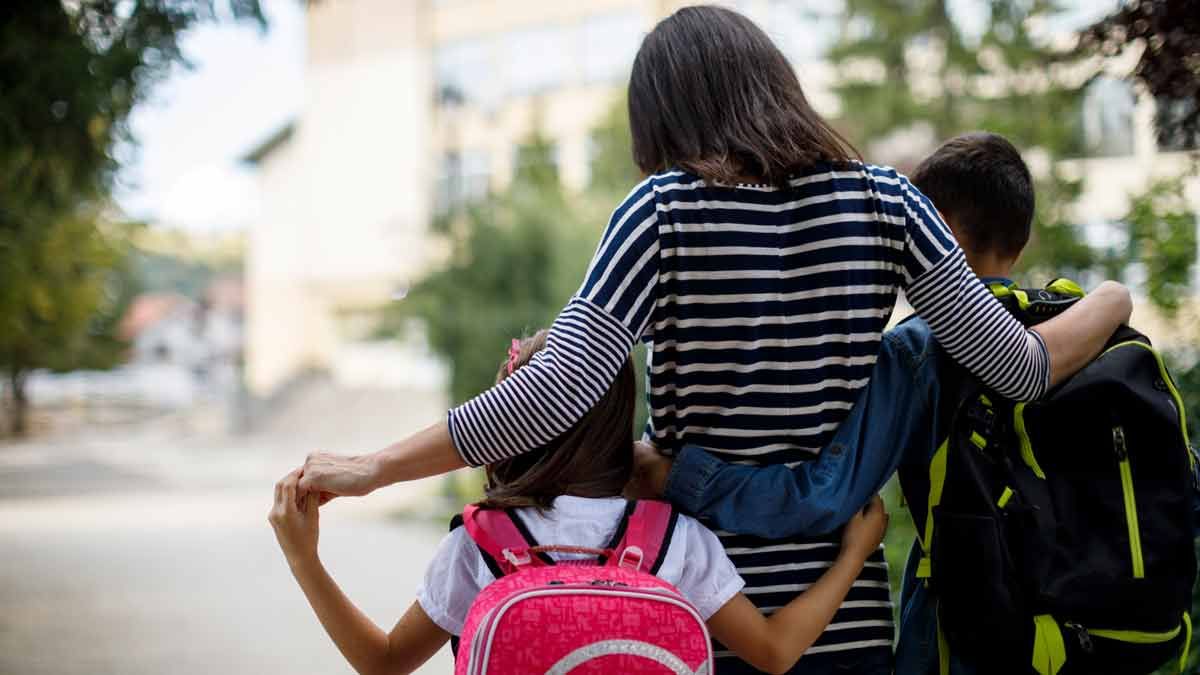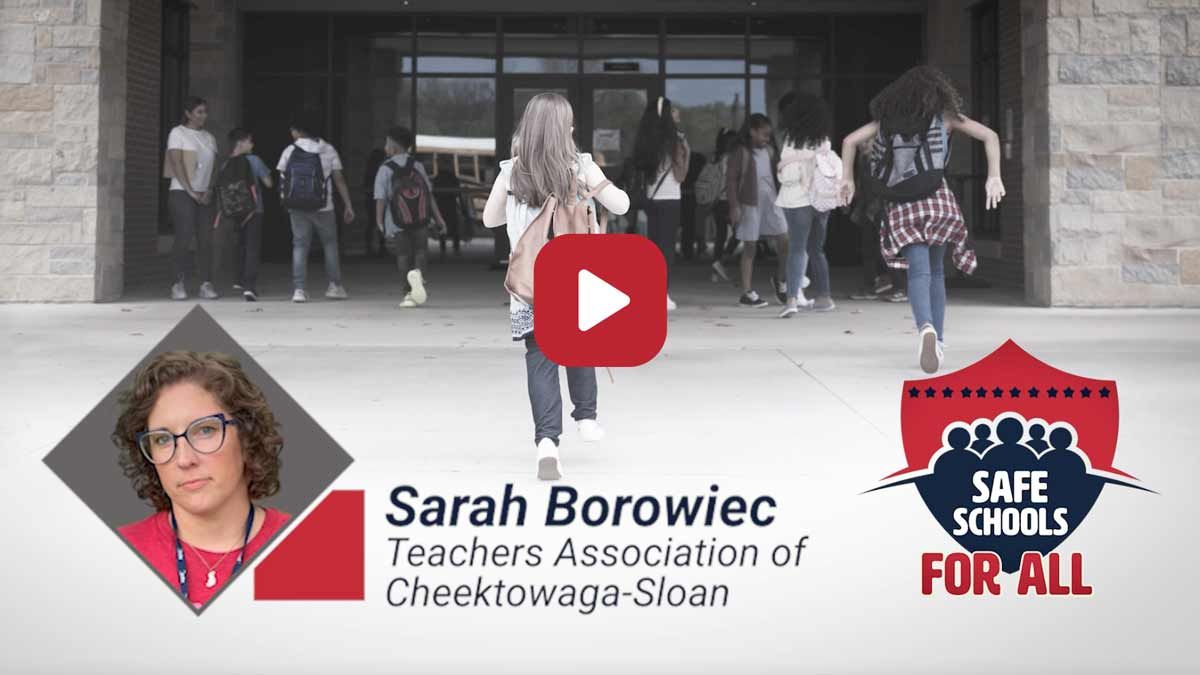Community Schools
Community Schools Link Families in Need With Valuable Services
Despite all the challenges the COVID-19 pandemic created for education, one Rome Elementary school student was missing in-person classes for a seemingly unlikely reason: He didn’t have the proper shoes.
Sadly, the impact of poverty on students is something Rome educators know all too well.
“The pandemic shined a light between the cracks,” says high school chemistry teacher Rob Wood. “The pandemic exacerbated the problems we already knew were there. Basic needs like lack of access to food, hygiene and shelter, transportation for medical appointments, mental health and social issues — educators have seen them manifest in the classroom for years. The pandemic only added to the stress.”
That’s why the Rome Teachers Association, which Wood leads, helped establish the district’s community schools initiative in 2017. Community schools provide things like on-site laundry, mobile health clinics and food pantries available to all students. But in Rome, the community school is also a network that partners with private businesses on joint initiatives, social service providers and non-profits to ensure families’ basic needs are met, so students can focus on education. Ultimately, for every $1 invested in the network, they’re able to provide upward of $20 worth of services thanks to cost-sharing arrangements with providers and both financial and non-monetary donations.
From March 2020 through the end of the school year in June 2021, Rome’s Connected Community Schools program, which also serves eight neighboring districts, distributed more than 8.3 million meals to more than 32,000 people, provided hygiene supplies to 5,700 individuals, school supplies to 3,500 students and had made referrals to more than 3,500 services and resources for 1,200 people. The community schools even served parents and grandparents who lacked access to technology at home and needed to learn new technology to keep up with remote learning demands.
Statistics tell only part of the story, though. Connected Community Schools has created an ethos that every person has a role to play.
When Rome Free Academy senior Jordan Purrington heard that an elementary student wasn’t coming to school because he lacked the right shoes, she established an emergency fund to cover the cost of warm boots for kids who lack them, sneakers for gym class or co-pays for families that can’t afford a medical appointment. The fund will be administered by Connected Community Schools moving forward.
“It broke my heart, but it also motivated me,” Purrington says. “There are so many kids in our community who are struggling to obtain basic necessities.”



